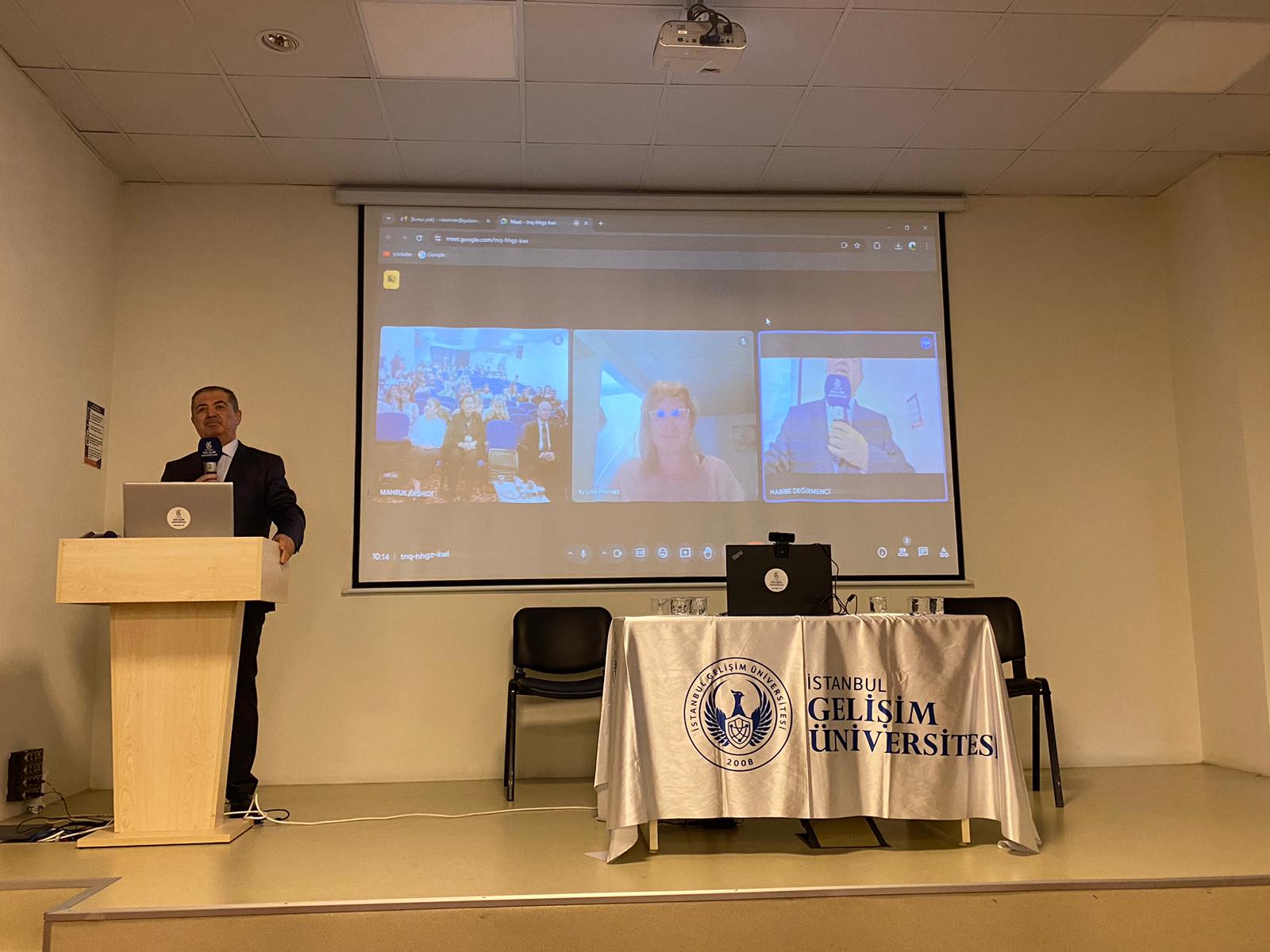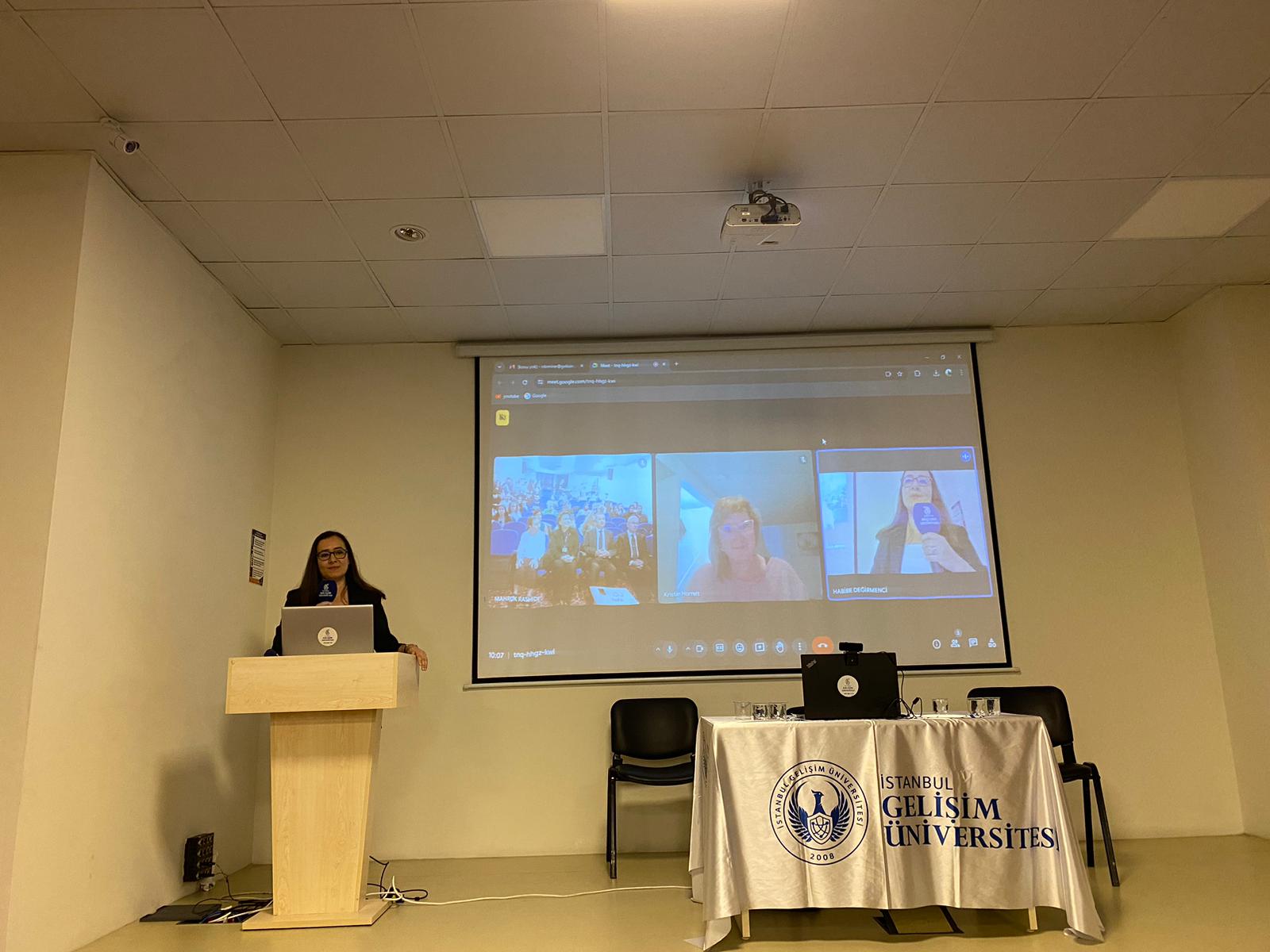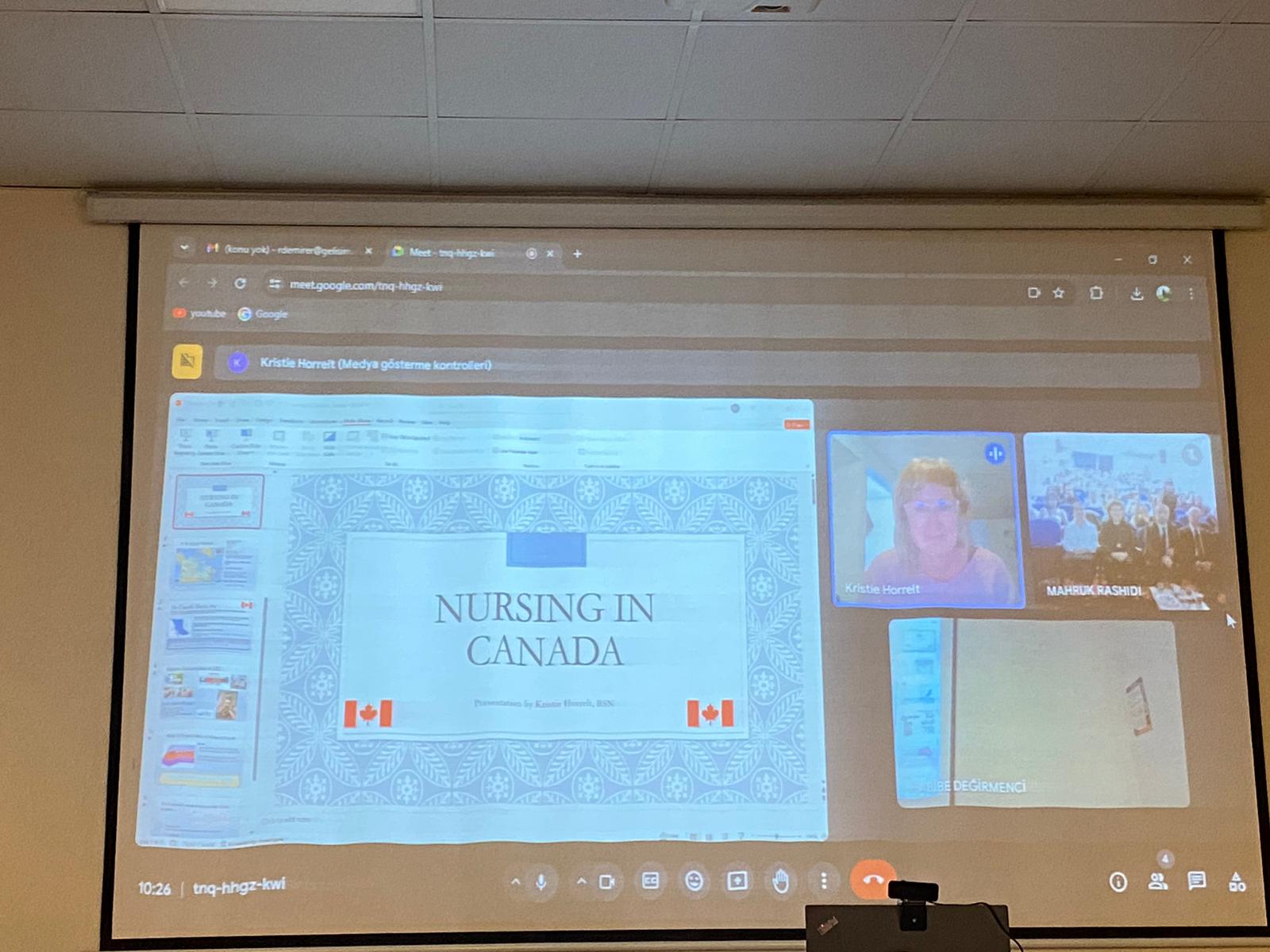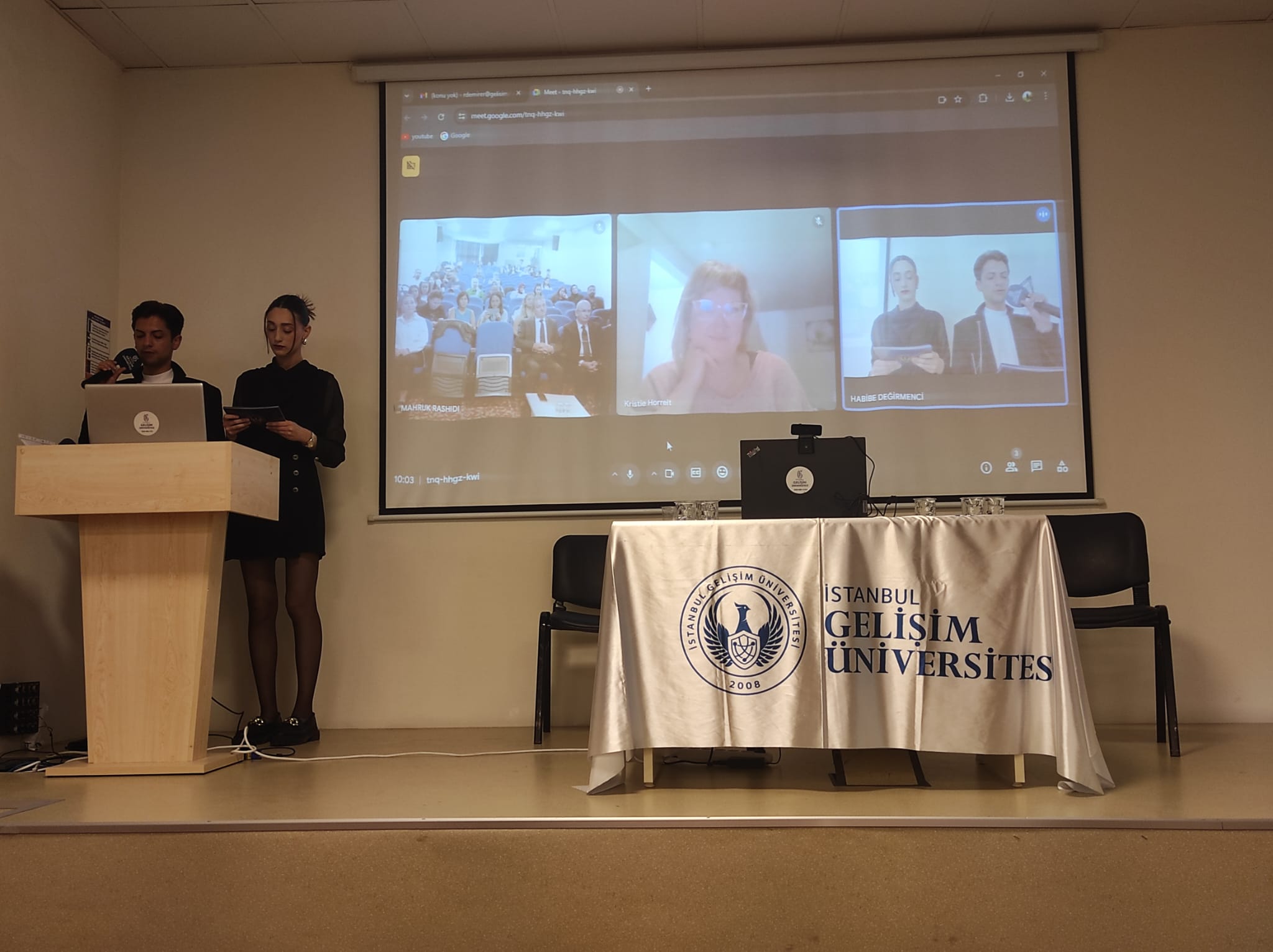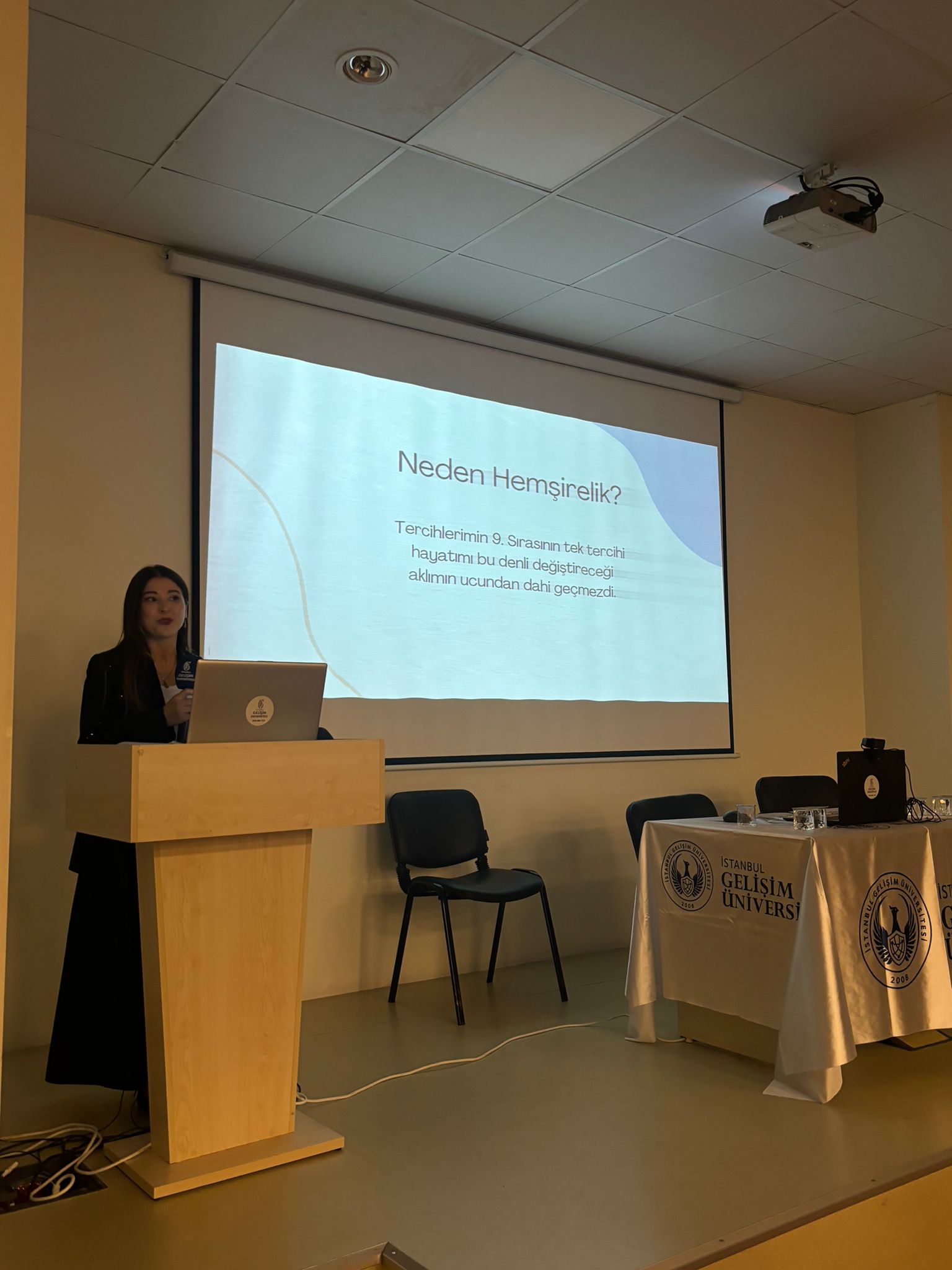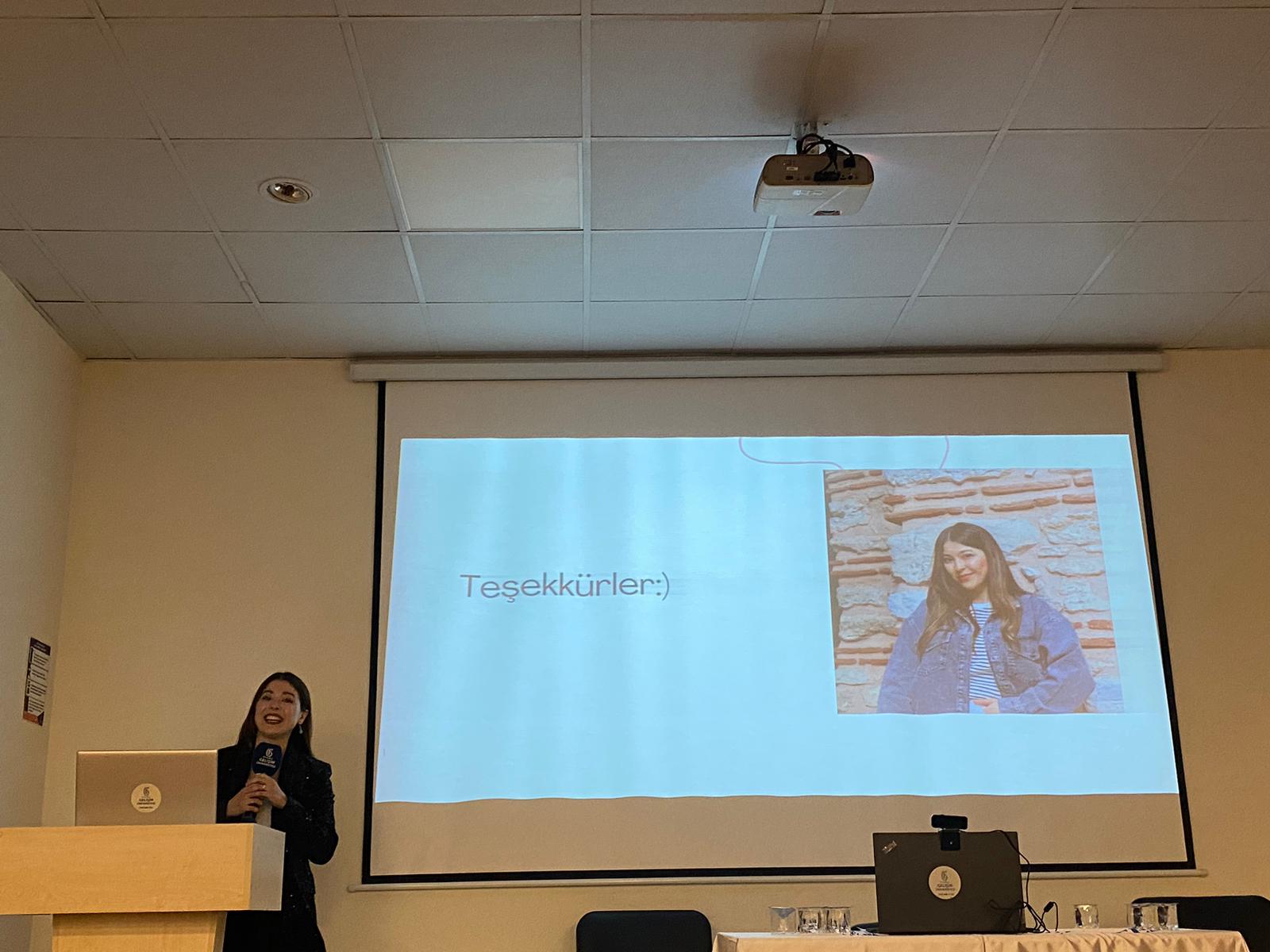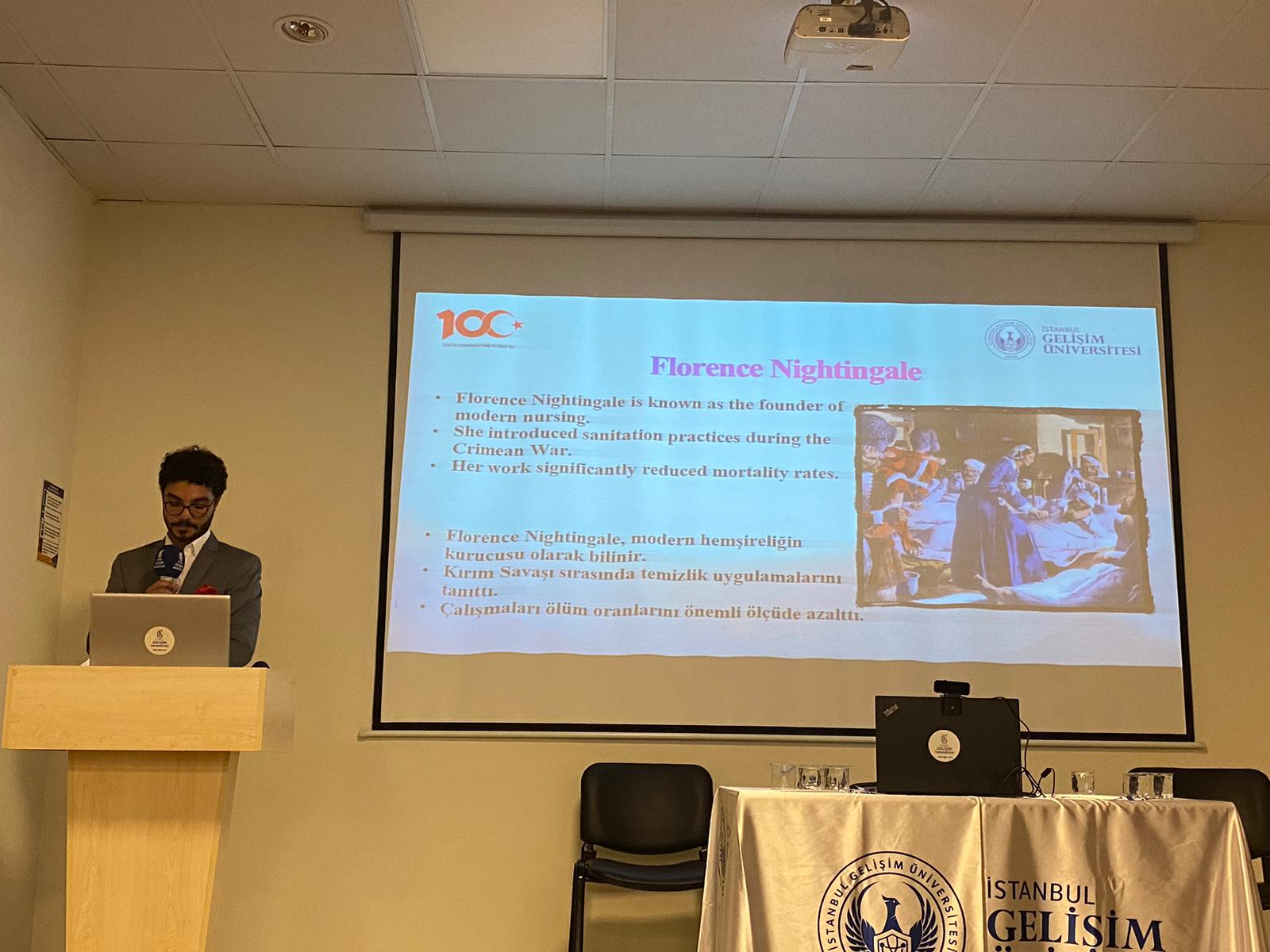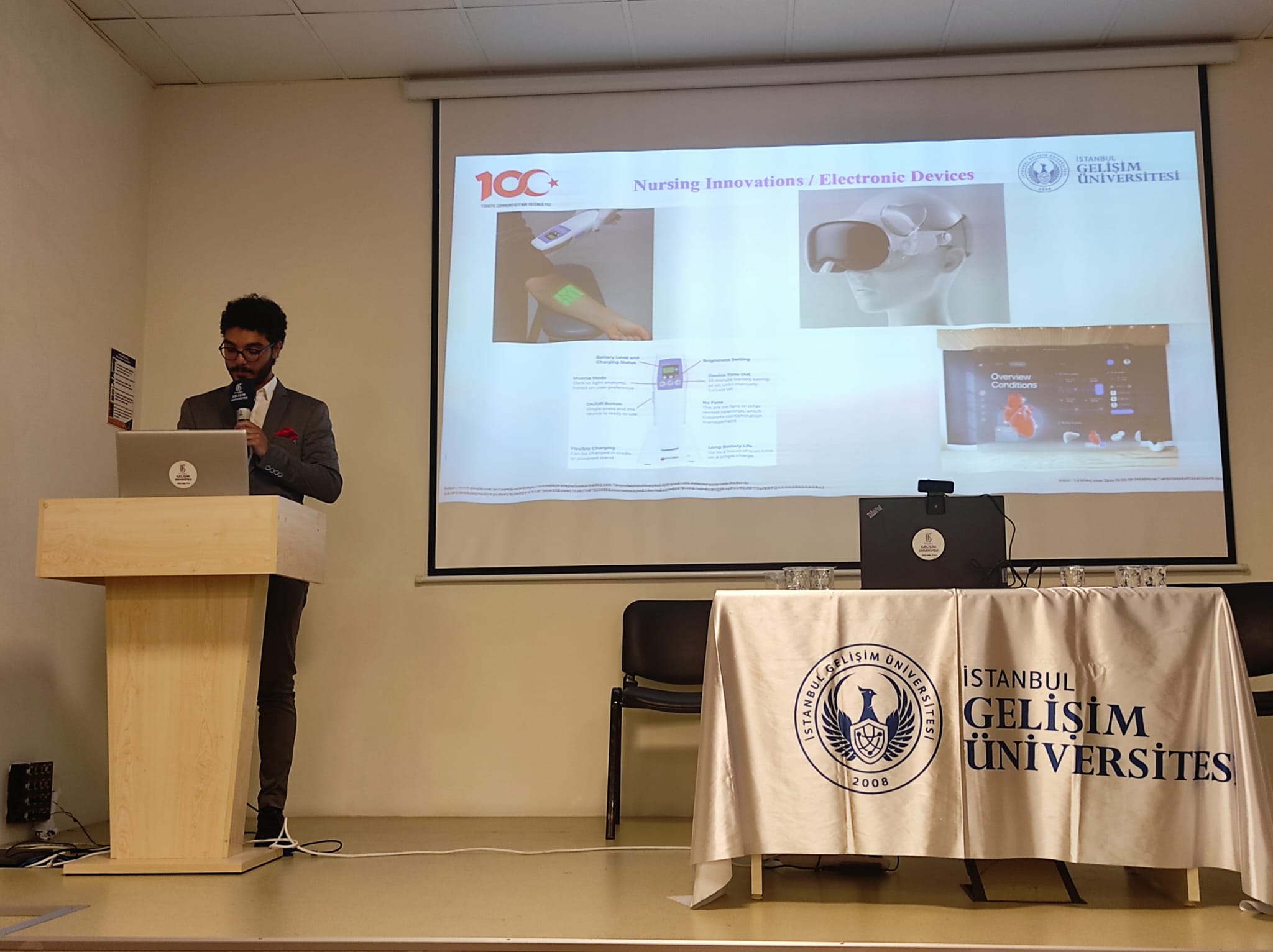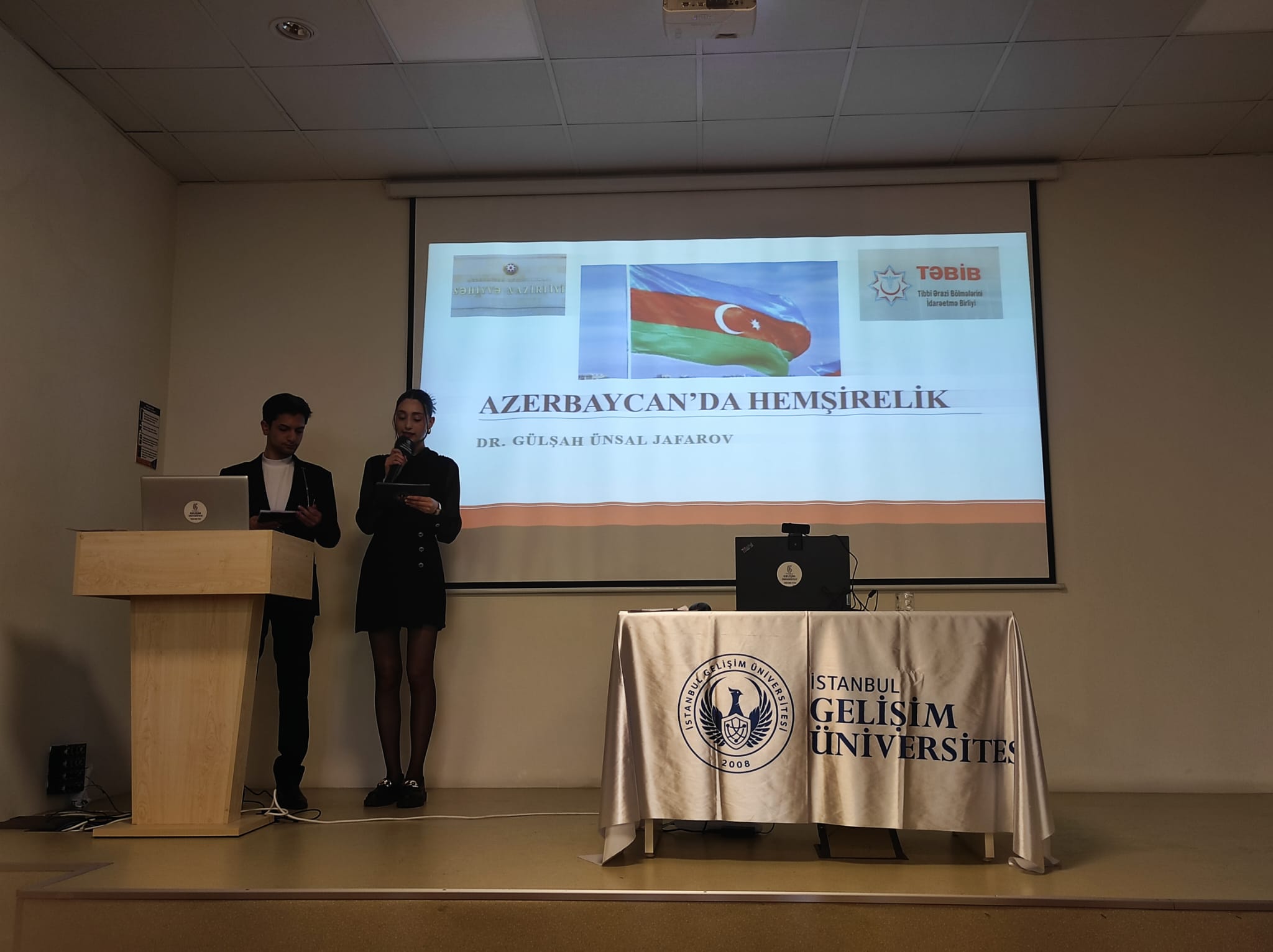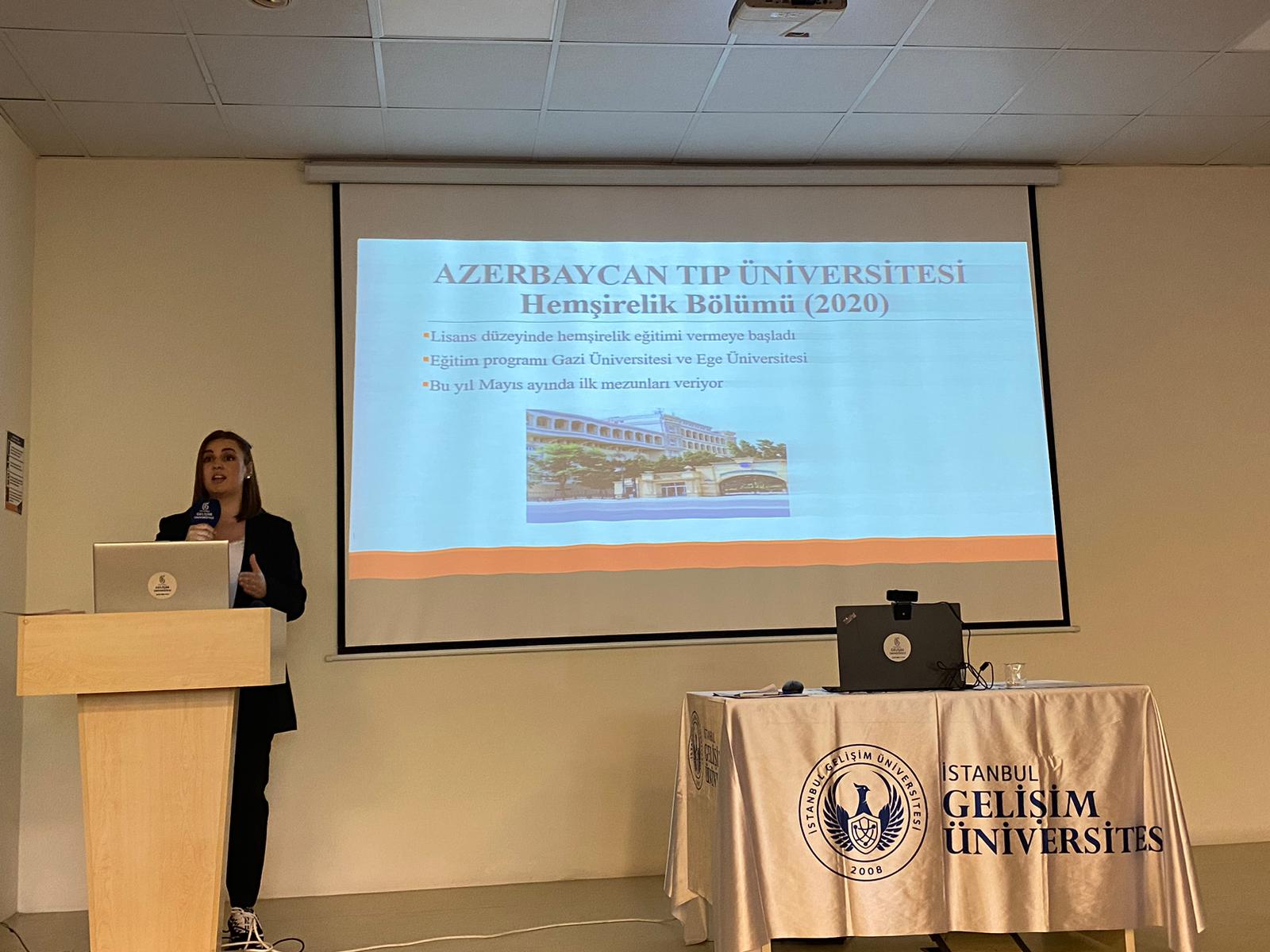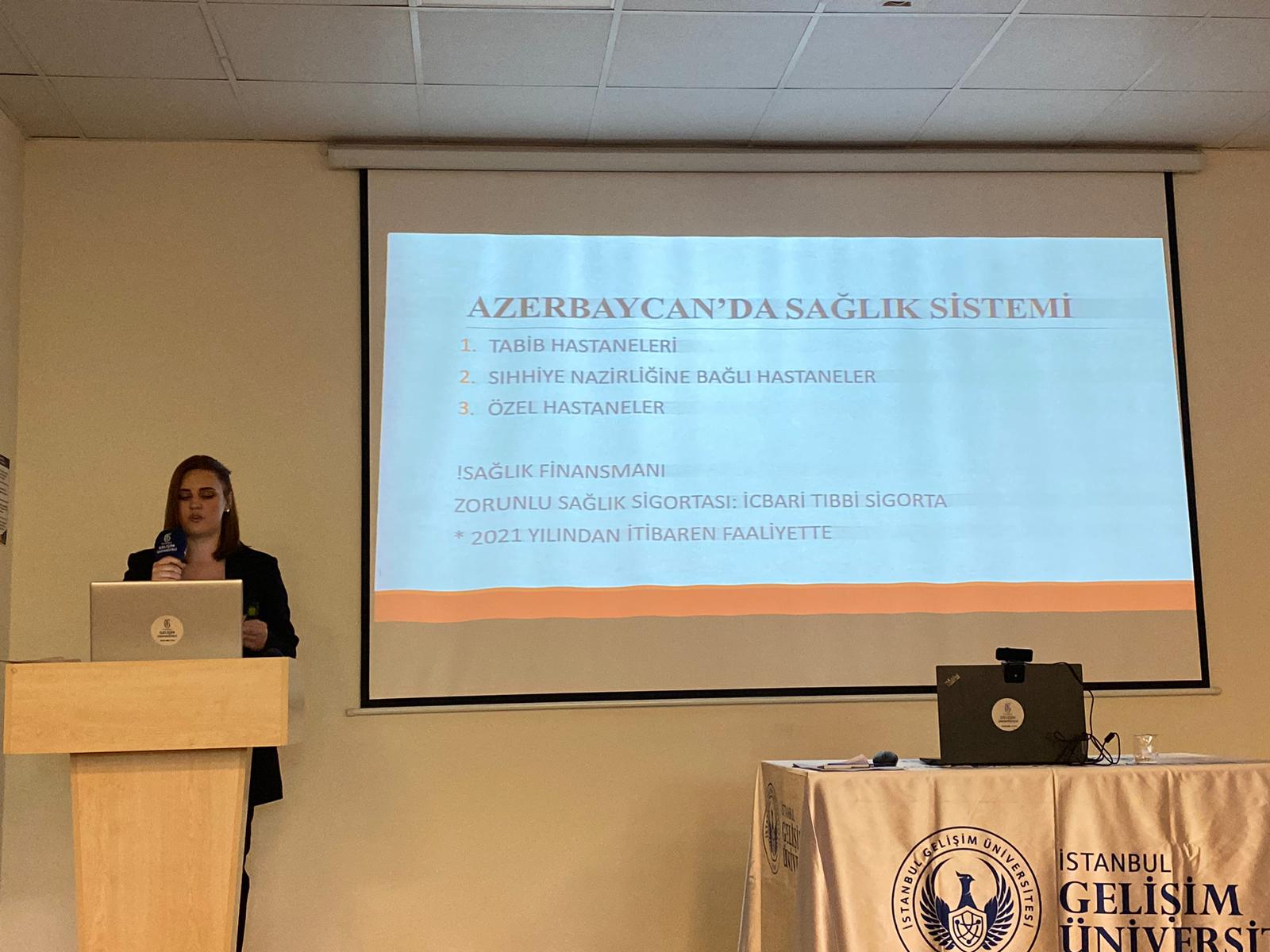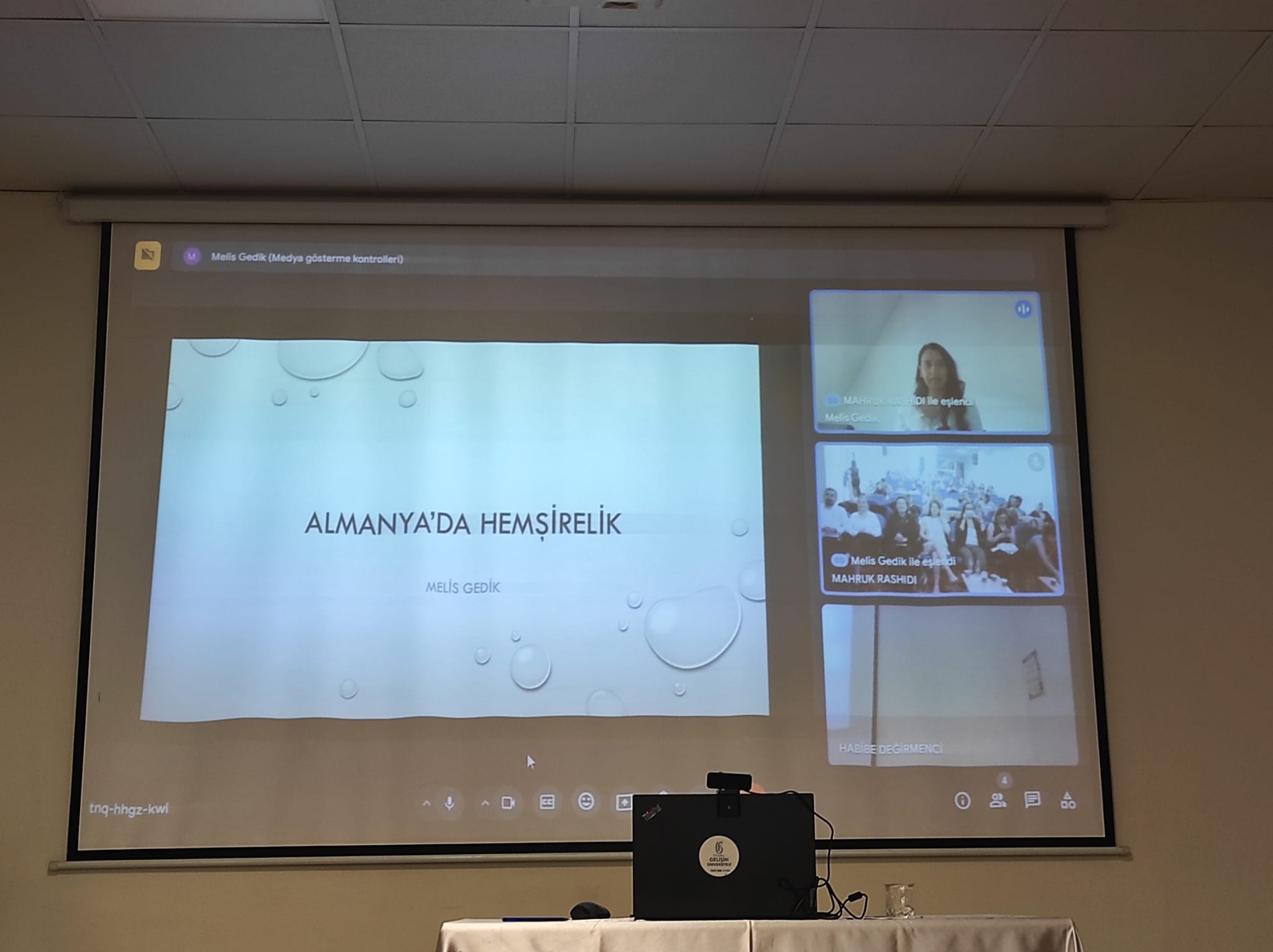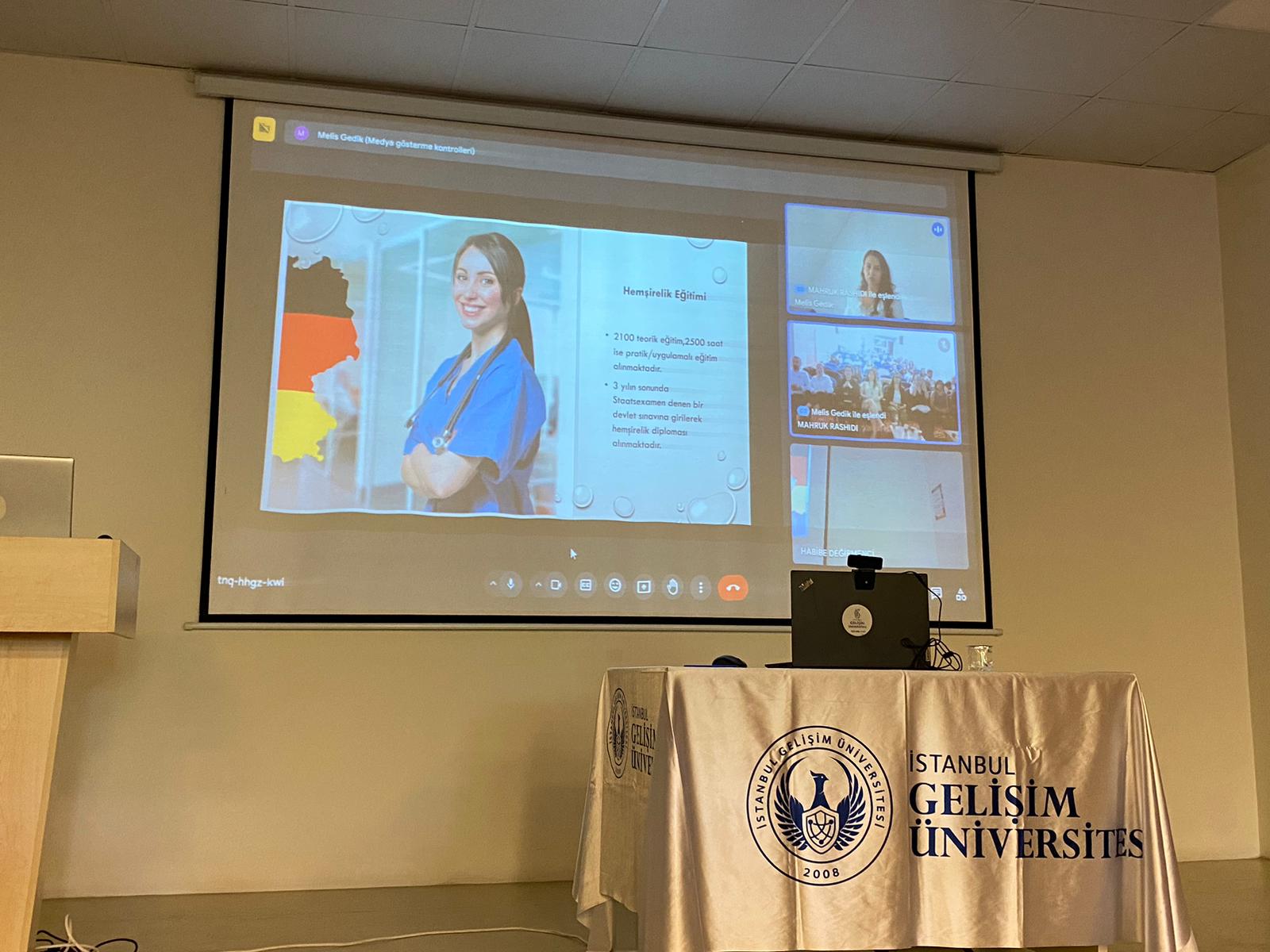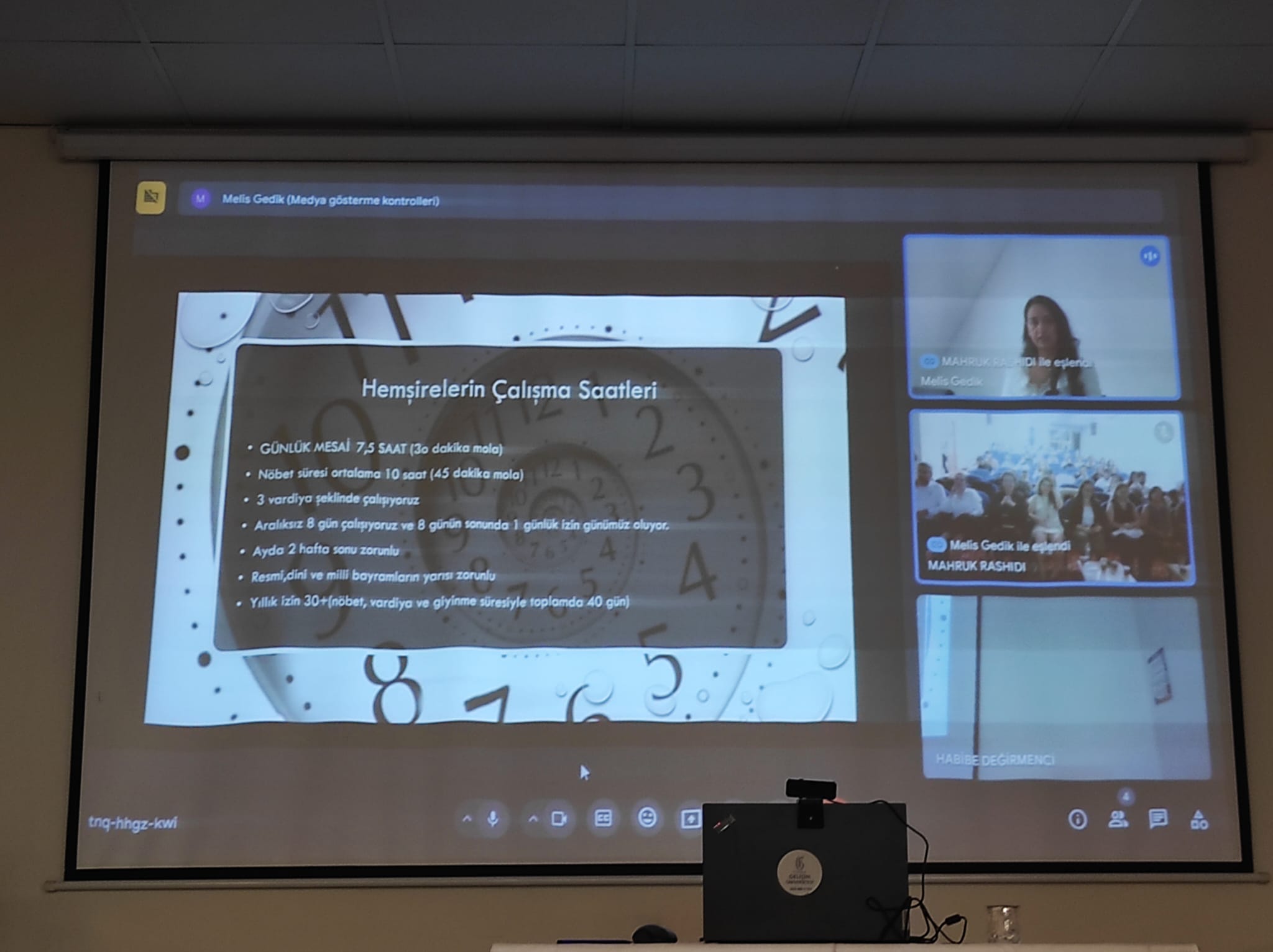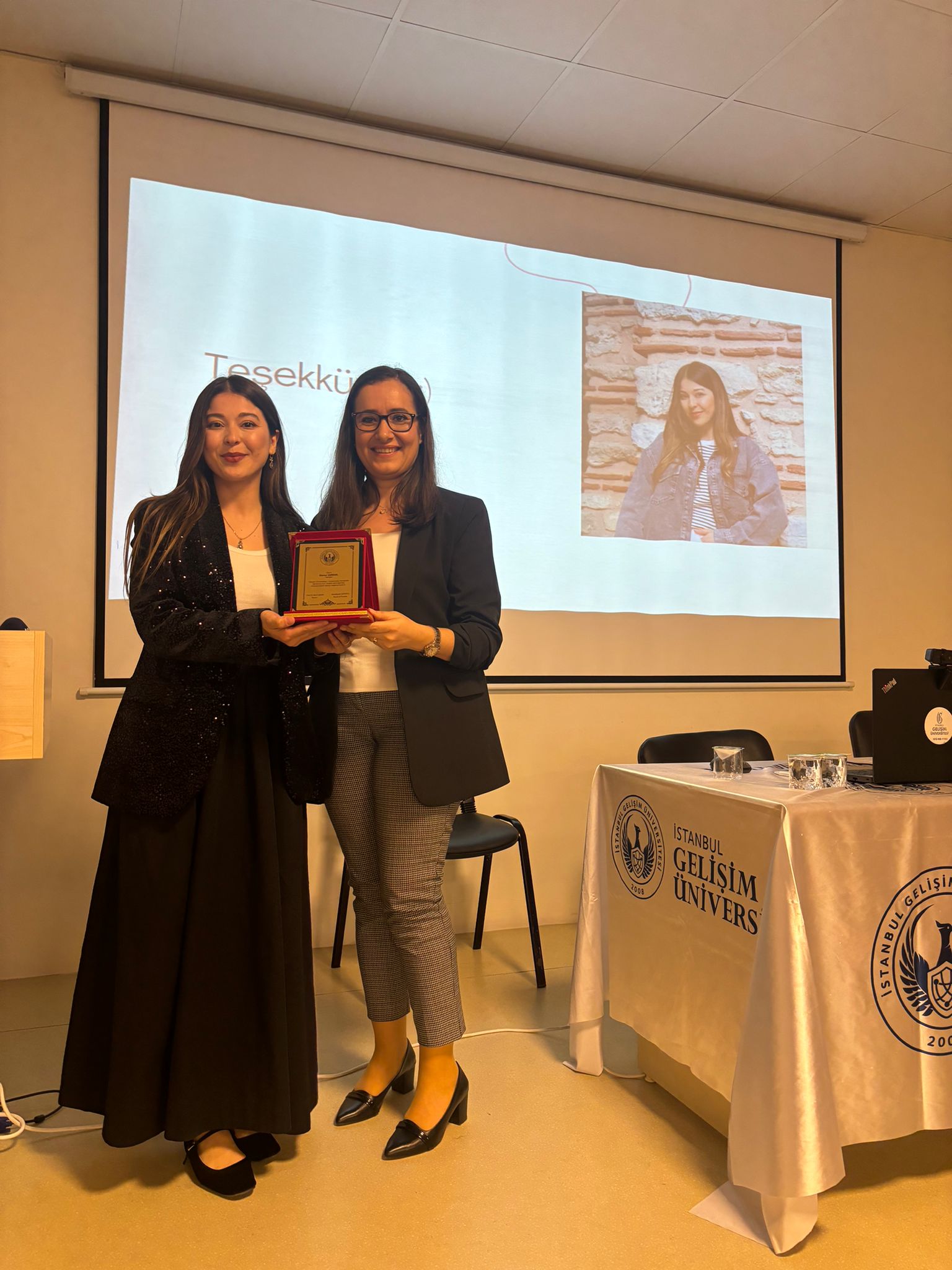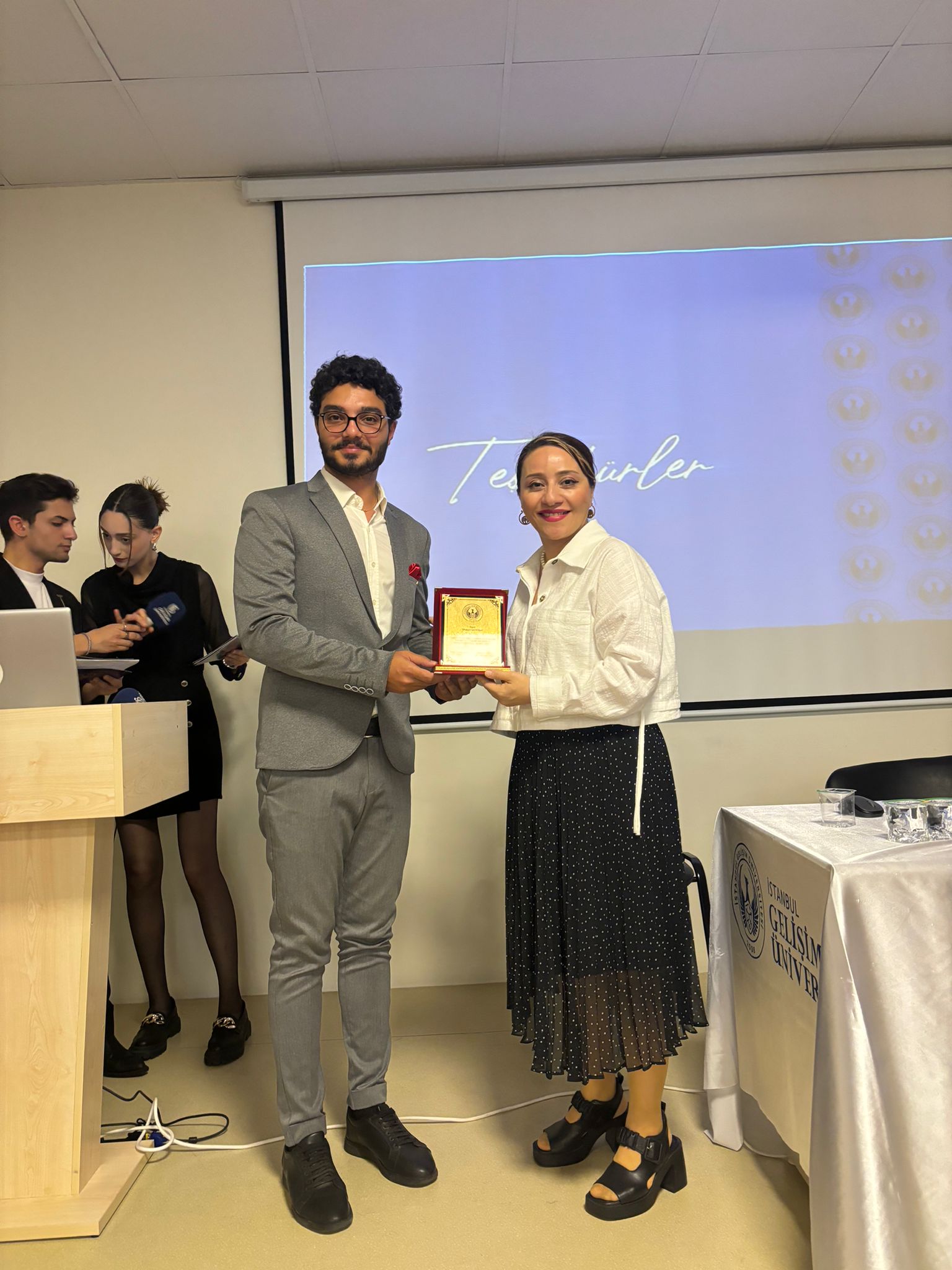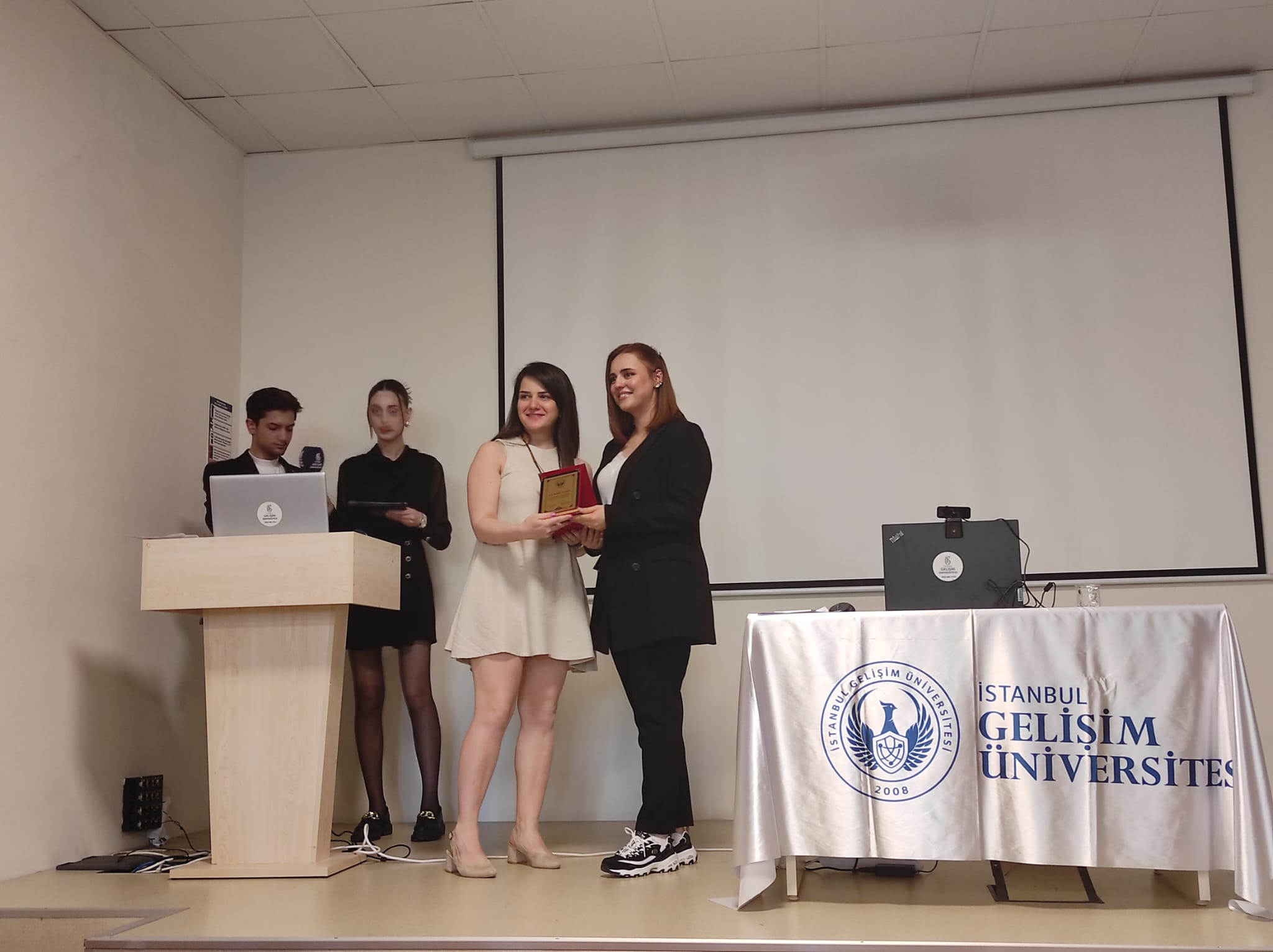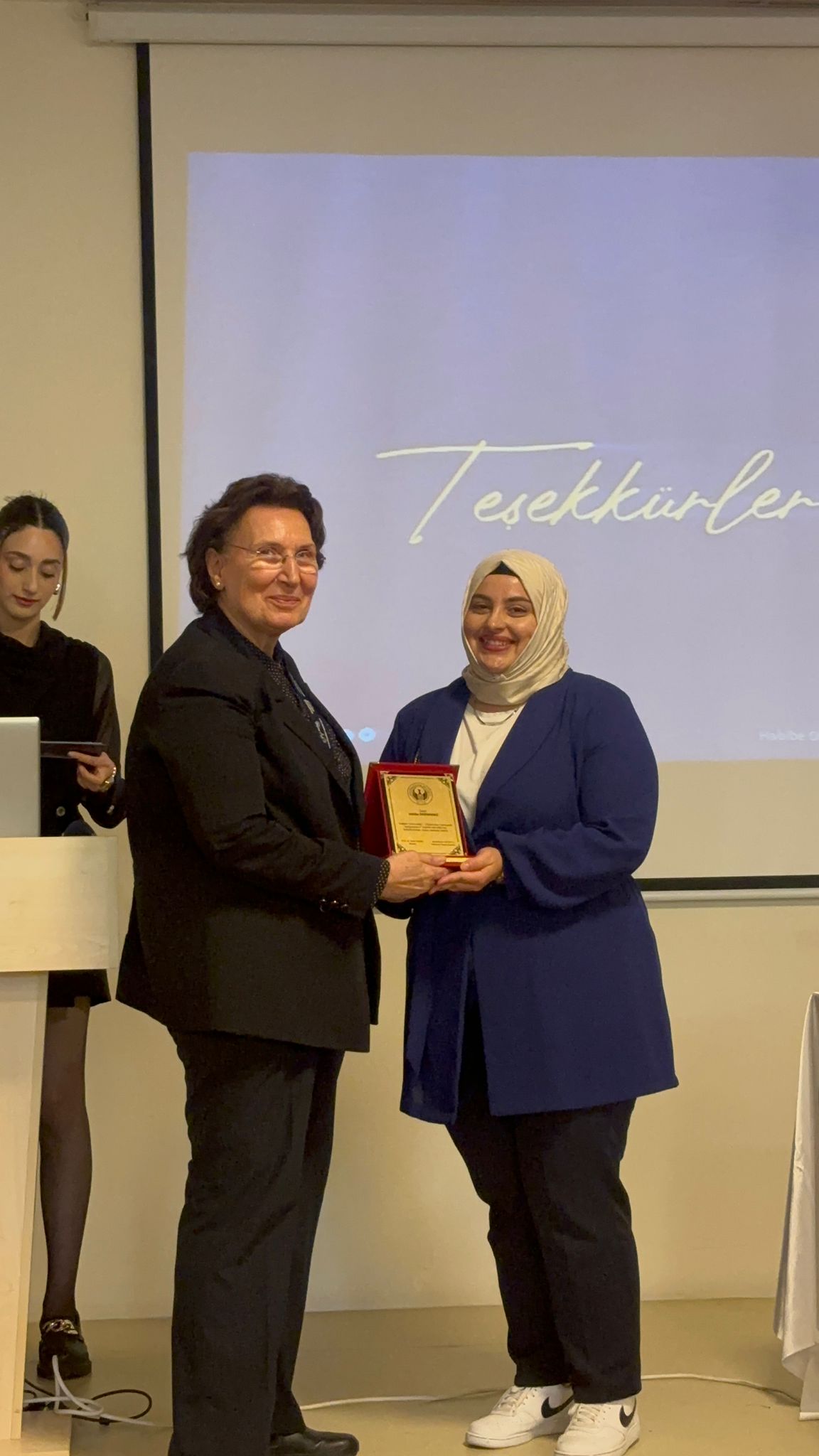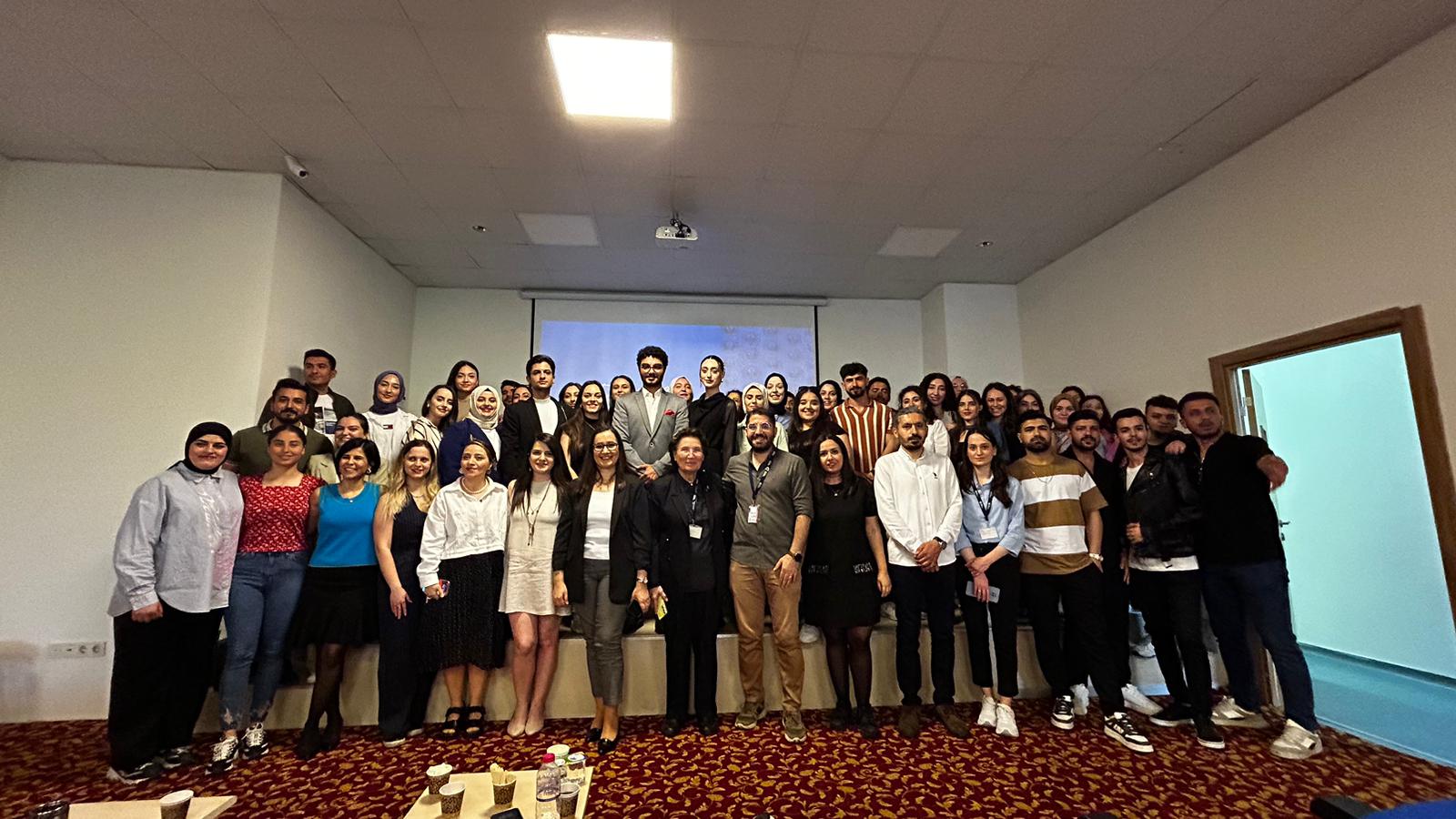The symposium, which began with a moment of silence and the National Anthem, featured an opening speech by Prof. Dr. Bahri Şahin, the Rector of Istanbul Gelisim University. In his speech, Prof. Dr. Bahri Şahin emphasized the importance of the nursing profession in the healthcare sector. In her speech, the Vice Dean of the Faculty of Health Sciences, Assist. Prof. Neşe Kıskaç, stated;
"In 1972, the ICN defined nursing as a professional group that helps to protect and improve the health of individuals, families, and communities, and provides healing and rehabilitation in case of illness. The ICN's 2021 definition states that nurses, deeply committed to their traditions and practices in valuing equity, inclusivity, and diversity, have embraced four fundamental nursing responsibilities: promoting health, preventing illness, restoring health, and alleviating suffering while supporting a dignified death. The need for nursing is universal. Nursing care requires respect for and cannot be limited by factors such as age, color, culture, ethnicity, disability or illness, gender, sexual orientation, nationality, politics, language, race, religious or spiritual beliefs, legal, economic, or social status.
When we look at the Reflections of Atatürk's Understanding of Health in Turkish Nursing, I came across a review article by Serap Torun and Osman Bilgin published in 2024. While reading the article, I noticed that Atatürk's understanding of health aligns with that of the ICN. According to Atatürk, the 'State' should protect and improve the health of its citizens, safeguard the public from the infectious diseases prevalent at the time (such as malaria, typhoid, typhus, rabies, tuberculosis, trachoma, syphilis, etc.), and fight against these diseases.
Atatürk believed that there is a direct relationship between human health and the economic and social goals of the republic. A healthy individual is the most important resource for a country. This is because in a country with healthy individuals, defense will be easier, the economy will strengthen, production will increase, and most importantly, the population will grow. For Atatürk, a nation with healthy individuals was the most important goal.
According to Atatürk, "If a woman is poor, humanity is poor." This poverty should be considered not only in a material sense but also in a spiritual sense. Atatürk defined womanhood, which played an active role alongside men in the National Liberation Struggle and took part in the establishment of the Republic as "Turkish women," as inherently having a high status. He believed that those who create the wealth humanity enjoys today are the women who give birth, nurture, and pass on this heritage. Atatürk put into practice the idea that women should act, work, and progress alongside men in all areas of society. According to Atatürk, after the proclamation of the republic, one of the state's primary duties was to ensure the education of new generations of Turkish youth without any distinction between boys and girls. In this context, he emphasized the acceleration of educational activities in the field of nursing.
Kristie HORRELT, an Emergency Nurse who connected online from Canada, gave a presentation titled "Nursing in Canada." In her talk, Emergency Nurse Kristie HORRELT mentioned:
"Canada is a developed country with a population of over 38 million, the majority of whom live in urban areas. The expected life expectancy is 84 years, and health expenditures account for 12.9% of the GDP.
The Canada Health Act provides all Canadians with reasonable access to medical and surgical-dental treatment services. Health insurance plans are managed by the provinces but are non-profit. The insurance coverage includes all insured hospital services and is portable.
Nurses are a regulated profession, and their scope of practice is determined both nationally and provincially. Their duties include patient care, medication administration, patient education, counseling, and advocacy. Nurses must possess problem-solving and critical thinking skills to provide safe care to patients.
To become a nurse in Canada, you need to obtain a bachelor's or master's degree from a nursing program recognized in Canada. Additionally, you must undergo foreign education assessment through the National Nursing Assessment Service (NNAS) and register with the nursing licensure board of the relevant province or territory. Proficiency in English or French is also required.
Nursing is an in-demand profession in Canada, making it relatively easy to find a job. Nurses receive good salaries and benefits. Canada is a beautiful country offering a high quality of life. Nurses have the opportunity to make a significant difference in patients' lives.
However, there are challenges to nursing in Canada, such as an aging population and an increasing burden of chronic diseases, which put pressure on nurses. There is a shortage of nurses in rural areas. The workload can be heavy and stressful at times.
Being a nurse in Canada is both rewarding and challenging. If you are interested in pursuing a career in nursing, Canada could be a good option for you," said Kristie HORRELT, providing information about the Canadian healthcare system, the opportunities and challenges in nursing, the roles and responsibilities of nurses, and the benefits of the nursing profession.
Continuing the symposium, Content Creator and Nurse Elanur Vardar gave a presentation titled "Nursing in the Digital World." In her talk, she stated:
"Digitalization is profoundly transforming all aspects of our lives, including healthcare services. The nursing profession is also benefiting from this change, making significant strides in providing more effective, efficient, and patient-centered care. In this context, social media is being used effectively. I produce videos on newborn care, baby care, and breastfeeding education, collaborate with various brands, and offer recommendations. The breastfeeding consultancy videos I uploaded have garnered significant interest from mothers. I develop video content tailored to the needs of people regarding baby care. Being able to help and be useful to people in this area is very important and satisfying for me. You, too, can use technology to help people in our evolving world," she said, providing insights into digital content creation.
Shayan Vassighi, a 3rd year student of the English Track of the Department of Nursing, Faculty of Health Sciences, IGU, said in his speech titled "Innovation in Nursing";
"Innovation in nursing plays a critical role in enhancing the quality of patient care, reducing nurses' workload, and making healthcare services more efficient. Innovative approaches not only streamline nurses' daily tasks but also lead to better outcomes for patients. The integration of technology into healthcare has brought revolutionary changes to nursing. Innovation in nursing education allows nursing students to better develop their skills and capabilities. Simulation technologies, virtual reality (VR), and augmented reality (AR) provide opportunities for nurses to learn through practice and gain experience in real-world scenarios.
In conclusion, innovation in nursing is indispensable for improving the quality and effectiveness of healthcare services. Nurses must embrace technological innovations and contribute to shaping the future of healthcare by developing care models. Together, through innovative approaches and continuous improvement, we can propel the nursing profession forward."
Dr. Nurse Gülşah Jafarov from Azerbaijan, while discussing the healthcare system in Azerbaijan, provided insights into the development of the nursing profession. In her speech, she stated:
"The nursing profession in Azerbaijan is open to development. Technological advancements in the healthcare sector are influencing nursing practices and leading the profession through continuous evolution. It is crucial for nurses to undergo continuous education to adapt to these technological innovations.
Nursing in Azerbaijan has been striving for development from the past to the present and has become an indispensable part of healthcare services. I believe that in the future, the nursing profession will continue to strengthen and contribute to enhancing the quality of healthcare services.
I extend my gratitude to all nurses for their dedication and efforts in practicing this noble profession. I am confident that we will continue our work with the same determination and perseverance in the future. Thank you."
Melis Gedik, who joined online from Germany, discussed nursing in Germany during her speech:
"Nursing in Germany has a rich history and a robust education system. Nursing education is provided at high standards, and nurses are prepared for their profession through academic training at the bachelor's level. Nursing education in Germany offers a comprehensive program that includes both theoretical knowledge and practical skills. These programs enable nurses to respond effectively to patients' needs and enhance the quality of healthcare services.
Nursing education in Germany is typically structured as a three-year vocational training program. Throughout their education, nursing students receive theoretical lessons and gain practical experience in hospitals. Additionally, nursing education in Germany is supported by paid continuous professional development courses and specialization programs." Melis Gedik also provided information about the working conditions for nurses in Germany, including working hours, nursing employment opportunities, and the qualities required for immigrant nurses.
IGU Faculty of Health Sciences Nursing Department Turkish Track 2nd-year student Habibe Değirmenci stated in her presentation on "Communication in Nursing":
"Effective communication is one of the cornerstones of the nursing profession and directly influences the quality of patient care. Nurses' strong communication skills enable them to establish more efficient and trustworthy relationships both with patients and healthcare teams. As a result, patient satisfaction and care quality improve, and healthcare services are delivered more effectively." Habibe Değirmenci provided information on topics crucial to patient communication, such as understanding and sharing patients' feelings, informing them about their health conditions and treatment processes, demonstrating a reassuring and empathetic approach, focusing attentively on patients' expressions, and providing feedback.
At the end of the event, plaques were presented to the speakers.
Vice-Dean of the Faculty of Health Sciences Assist. Prof. Neşe Kıskaç to Nurse Elanur Vardar, Assist. Prof. Bahar Nur Akdoğan, Dr. And to Gülşah Jafarov, Assist. Prof. Mahruk Rashidi, to Shayan Vassighi, a 3rd year student of the Nursing Department English Program, Lecturer Ayşe Mücella SOYDAN presented her plaque to Habibe Değirmenci, a 2nd year Nursing Department Turkish Program student.
